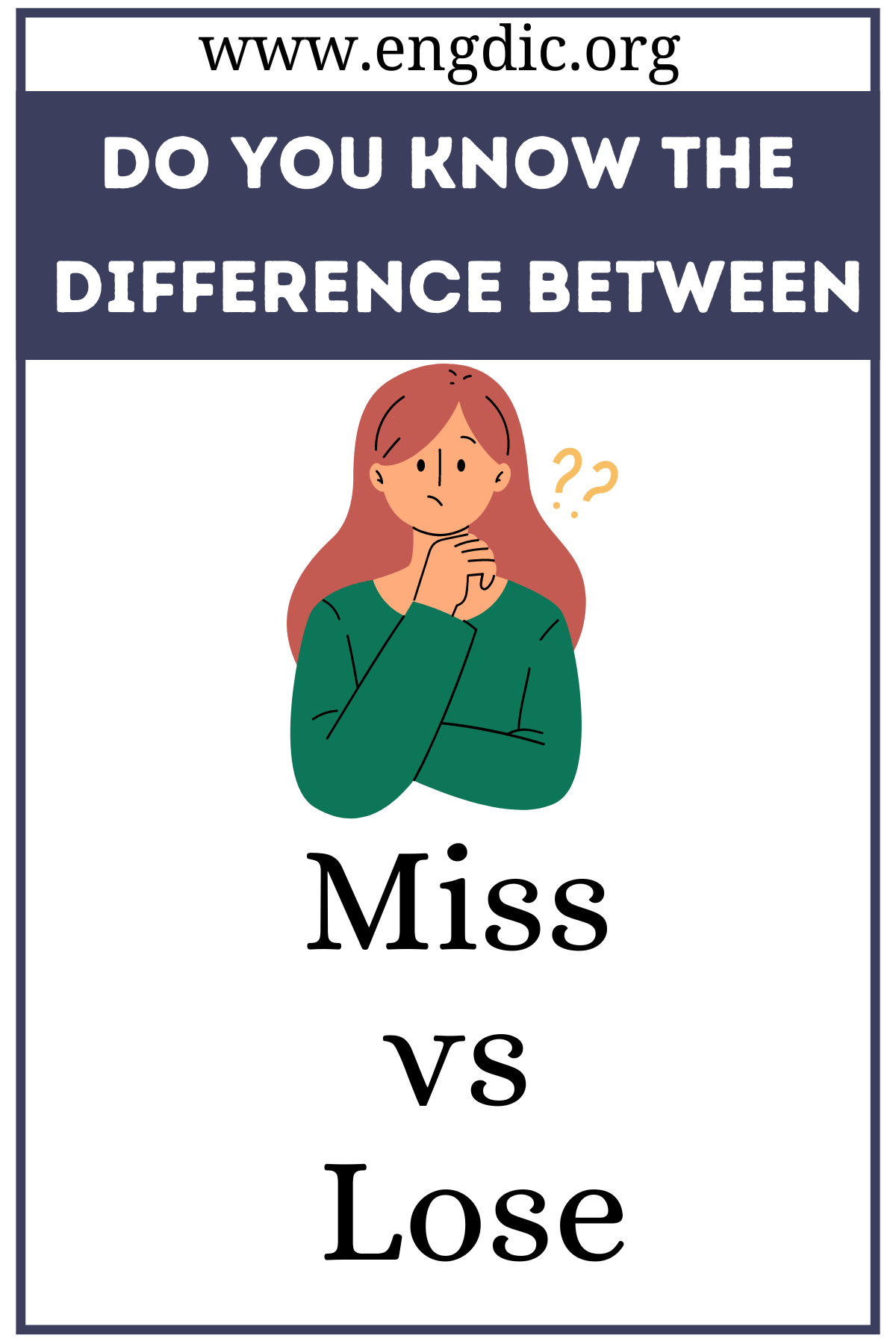“Miss” and “Lose” are often used interchangeably but have distinct meanings. “Miss” generally implies the absence of something expected or desired, while “Lose” involves the unintentional deprivation of possession or control over something.
If you “miss” the bus, you didn’t catch it. If you “lose” your keys, you can’t find them. The former refers to missing an opportunity or failing to be present, while the latter indicates the physical loss of an item or state. Understanding these nuances ensures accurate usage in various contexts.
Miss
Definition
“Miss” refers to the act of failing to catch, notice, or be present for something. It can also imply feeling sadness for the absence of a person, object, or event.
Usage
- Missing Opportunities: Often used when failing to achieve or be present for something expected.
Example: She missed the concert due to traffic. - Missing People: Indicates feeling a longing for someone absent.
Example: He misses his family while he’s away at college. - Missing Targets: Failure to hit or achieve a specific target.
Example: The archer missed the bullseye.
Lose
Definition
“Lose” means to be deprived of or cease to have something, either by accident or deliberate action. It also suggests failing to maintain control or suffer a defeat.
Usage
- Losing Items: Refers to unintentionally misplacing objects.
Example: I always lose my keys. - Losing Control: Indicates the loss of control over a situation or emotion.
Example: She began to lose her temper. - Losing Games: Implies being defeated in a competition.
Example: They lost the match in the final minute. - Losing People: Can also imply experiencing the death of someone close.
Example: He lost his grandmother last year.







